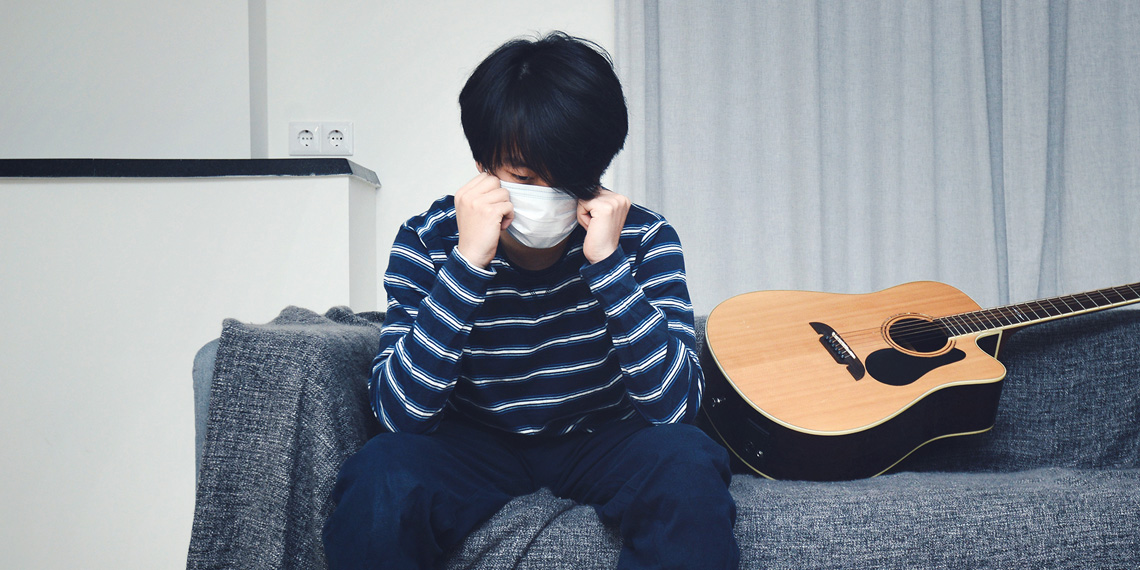
The COVID-19 lockdown caused a forced closure of society, confining many people to their homes with little to do. With this lack of activity came negative mental health outcomes. Using this unique situation, a study published in International Journal of Clinical and Health Psychology explores why an increase in sedentary behavior leads to negative emotions in adolescents.
Sedentary behavior is behavior that expends minimal energy and occurs while sitting, laying, or reclining. Many adolescents partake in a lot of sedentary behavior due to sitting in school, watching tv, playing video games, or utilizing their mobile phones. Sedentary behavior has been linked with many negative physical health outcomes, such as diabetes and cardiovascular disease.
When COVID-19 forced lockdowns and business closures, sedentary behaviors increased due to people having nowhere to go. Research has shown that even since society has moved back toward normal, children are still sitting more hours per day than they did pre-pandemic. Previous research has linked sitting and sedentary behaviors to negative mental health outcomes, but these relationships are not well understood. This study seeks to better understand the mediators that contribute to this relationship.
Liye Zou and colleagues utilized data from 1,065 students who were 13 to 18-year-old attending middle or high school in Shenzhen, China to serve as their sample. Participants were recruited online after getting permission from principals and parents. Students with psychiatric or neurological disorders were excluded from this study.
Participants completed measures on demographic information, BMI, number of siblings, physical activity, sleep quality, social support, depression, and anxiety. Sex differences appeared, with male participants reporting higher BMI, age, and better sleep quality and female participants reporting sitting more and having higher rates of anxiety and depression.
Results confirmed previous research by demonstrating that increased sedentary behavior was associated with increased negative emotions for adolescent participants. Sedentary behavior was positively linked with sleep quality, depression, and anxiety, as well as negatively linked to social support. This study found that social support and sleep quality were both mediators in the relationship between inactivity and negative emotions.
This points to strong social connections and restful sleep being factors that could be protective against negative emotional outcomes, even if the adolescent has high levels of sedentary behaviors.
This study took important steps into better understanding the mechanisms underlying negative emotional outcomes from physical inactivity. This topic is especially important post-pandemic, when children and young people are increasingly partaking in sedentary behavior.
Despite this, there are limitations to note. One such limitation is that all measures were self-report, including sedentary behavior. This could lead to inaccurate information due to inaccurate memory recall or social desirability bias. Additionally, the cross-sectional nature of this data does not allow for causal inferences to be inferred.
“The results of the present research suggest that social support and sleep quality are important factors mediating the relationship between sedentary behavior and negative emotions in adolescents during a COVID-19-related home confinement in Shenzhen,” the researchers concluded. “Whether interventions that aim to increase social support and to improve sleep quality (e.g., physical training) can alleviate the effect of sedentary behavior on adolescents’ negative emotions needs to be investigated in future studies.”
The study, “Associations between sedentary behavior and negative emotions in adolescents during home confinement: Mediating role of social support and sleep quality“, was authored by Liye Zoua, Ting Wang, Fabian Herold, Sebastian Ludyga, Weina Liu, Yanjie Zhang, Sean Healy, Zhihao Zhang, Jin Kuang, Alyx Taylor, Arthur F. Kramer, Sitong Chen, Mark S. Tremblay, and M. Mahbub Hossain.
"behavior" - Google News
April 29, 2023 at 03:21AM
https://ift.tt/MPdcqkz
Sedentary behavior during the pandemic linked to negative emotions among adolescents - PsyPost
"behavior" - Google News
https://ift.tt/dUMbXCu
Bagikan Berita Ini














0 Response to "Sedentary behavior during the pandemic linked to negative emotions among adolescents - PsyPost"
Post a Comment